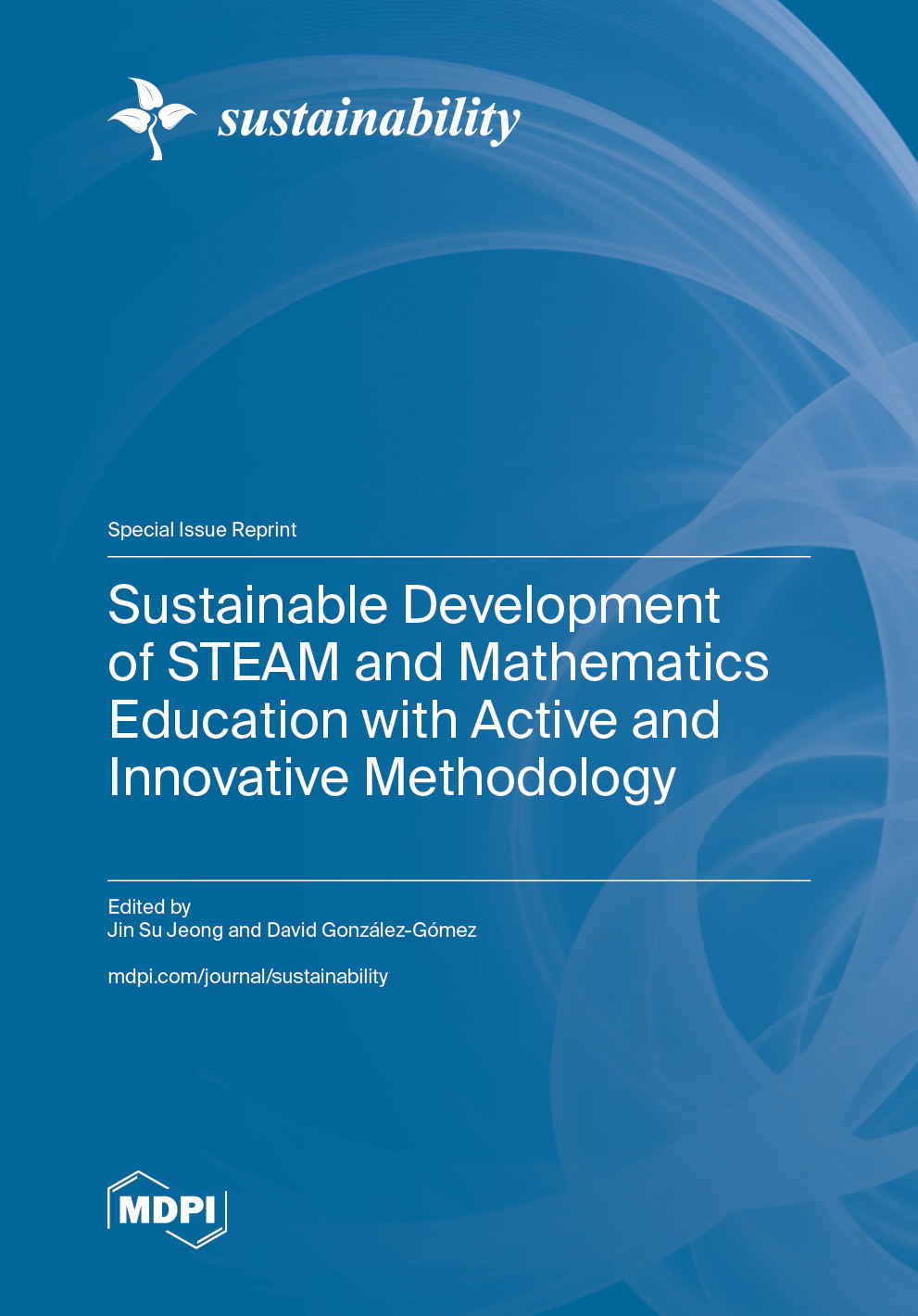Sustainable Development of STEAM and Mathematics Education with Active and Innovative Methodology
A special issue of Sustainability (ISSN 2071-1050). This special issue belongs to the section "Sustainable Education and Approaches".
Deadline for manuscript submissions: closed (15 March 2023) | Viewed by 33583
Special Issue Editors
Interests: sustainability; STEAM; teaching and learning; flipped classroom; affective domain; climate change; teacher training; ICT; E-learning; collaborative learning; fuzzy-MCDA; escape room; gamification; service learning; future classroom; inclusive learning
Special Issues, Collections and Topics in MDPI journals
Interests: science education; sustainable education; flipped methodology; science teaching methodologies; pre-service teaching education; affective domain in science and sustainable teaching; active teaching methodologies; STEM education
Special Issues, Collections and Topics in MDPI journals
Special Issue Information
Dear Colleagues,
With this Special Issue “Sustainable development of STEAM and mathematics education with active and innovative methodology”, we aim to perform a solid and concrete research-corpus to present the challenges and skills necessary for delivering a proper active, innovative, and sustainable science, technology, engineering, arts, and mathematics (STEAM) and mathematics education to scholars and/or professionals of dissimilar educational backgrounds and practical fields. In particular, the STEAM and mathematics education can outline a part, or is beginning to outline a part, of many educational institutions’ curricula with probable presentations to numerous working categorizations and disciplines. However, for confirming a correct engagement and progress of sustainability-oriented matters, attempts should be specific towards looking for the sustainable development goals (SDGs) in higher education institutions (HEIs) and fresh evaluations, as well as on continuing efforts in the working area.
Hence, in this Special Issue, we aim to publish articles, reviews, short notes, etc., on active and innovative approaches towards methodologies and advanced research related to sustainable STEAM and mathematics education. We encourage theoretical, methodological, and empirical research on teaching and learning, competencies and assessment, policy, program development and implementation, instructor preparation, community- and project-based learning, institutional collaborations and partnerships, and other relevant topics. Particular focus will be directed towards active and innovative teaching and learning approaches and methodologies that have been substantiated to be relevant to sustainable STEAM and mathematics education, such as flipped classrooms, blended learning, escape rooms, gamification, technology-based classrooms, future classrooms, virtual reality, e-learning and online learning, project-based learning, service-learning, inclusive learning, etc.
Prof. Dr. Jin Su Jeong
Prof. Dr. David González-Gómez
Guest Editors
Manuscript Submission Information
Manuscripts should be submitted online at www.mdpi.com by registering and logging in to this website. Once you are registered, click here to go to the submission form. Manuscripts can be submitted until the deadline. All submissions that pass pre-check are peer-reviewed. Accepted papers will be published continuously in the journal (as soon as accepted) and will be listed together on the special issue website. Research articles, review articles as well as short communications are invited. For planned papers, a title and short abstract (about 100 words) can be sent to the Editorial Office for announcement on this website.
Submitted manuscripts should not have been published previously, nor be under consideration for publication elsewhere (except conference proceedings papers). All manuscripts are thoroughly refereed through a single-blind peer-review process. A guide for authors and other relevant information for submission of manuscripts is available on the Instructions for Authors page. Sustainability is an international peer-reviewed open access semimonthly journal published by MDPI.
Please visit the Instructions for Authors page before submitting a manuscript. The Article Processing Charge (APC) for publication in this open access journal is 2400 CHF (Swiss Francs). Submitted papers should be well formatted and use good English. Authors may use MDPI's English editing service prior to publication or during author revisions.
Keywords
- STEAM education
- mathematics education
- sustainable development goals (SDGs)
- active teaching methodologies
- education innovation and technology
- innovative teaching methodologies for sustainable STEAM and mathematics education
- teacher education
- gamification and escape room
- cognitive/affective domain reserach in STEAM and mathematics education
- teacher training and higher education
- sustainability and climate change







